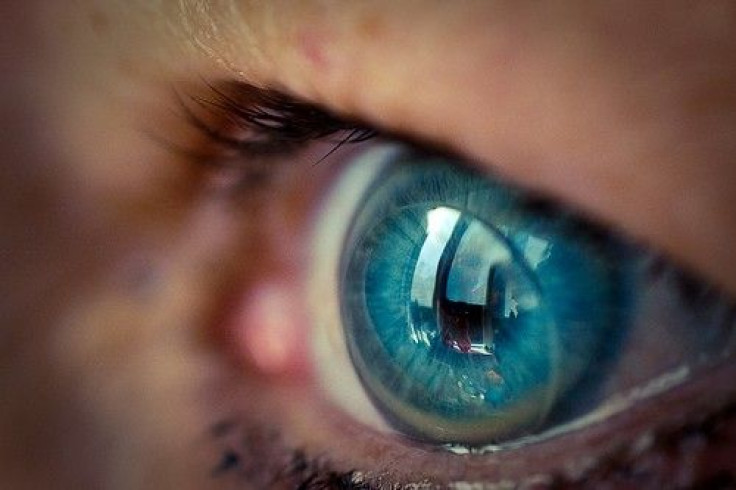Forget Google Glass: Google Patents New 'Contact Lenses' With In-Built Camera

Google has filed a new patent application with the U.S. Patent Office for a contact lens, which comes embedded with a tiny camera.
This lens can be used for different purposes like capturing the image where a wearer sees at real-time or assisting visually impaired by providing inputs to contact-based guiding device. This also means apart from capturing the image, the wearer can film videos as he sees around even without the person in front, presuming the user as a subject of suspicion. Of which, Google Glass has been criticized all along from the time Google unveiled the details of its Glass.
According to the patent application, "The contact lenses may assist people with visual impairments, by translating visual information into tactile stimulus which can be interpreted as a carrier for guidance."
"Technically, this smart contact lens would be equipped with a tiny CMOS camera sensor just below the pupil, control circuit, and a unique method of receiving power wirelessly. Since an imaging sensor is expected to absorb light, it cannot be transparent but it could be of the same color matched to the iris," Extremetech claimed.
Prviously, Google elaborated a plan to build "smart contacts" which could be used to measure blood glucose levels in diabetic patients to provide continuous feedback to both the wearer and his doctor. The highlight was the non-invasive nature of testing.
This new invention can catapult the way things work in medical field. This lens could potentially assist the doctors in finding vision-related problems in patients by exactly locating the problem spot. The contact lens could act as a wireless sensor, which is in constant communication with an external monitor to interpret the problem.
The lens could also double as vision augmentation for patients with any type of ocular problems, and could even pose as a futuristic platform for a Google Glass-like computing experience.
All the patents filed or submitted by big technology giants become a reality. But these smart contact lenses seem legit and have the potential to change the medical and the computing arena for the better.
Unlike the Google Glass, contact lenses are not despised by the knowledgeable public and it is not easy to even realize that the wearer is actually wearing one. With so many expectations around this particular smart contact lens, we could soon see a beta version of the same.






